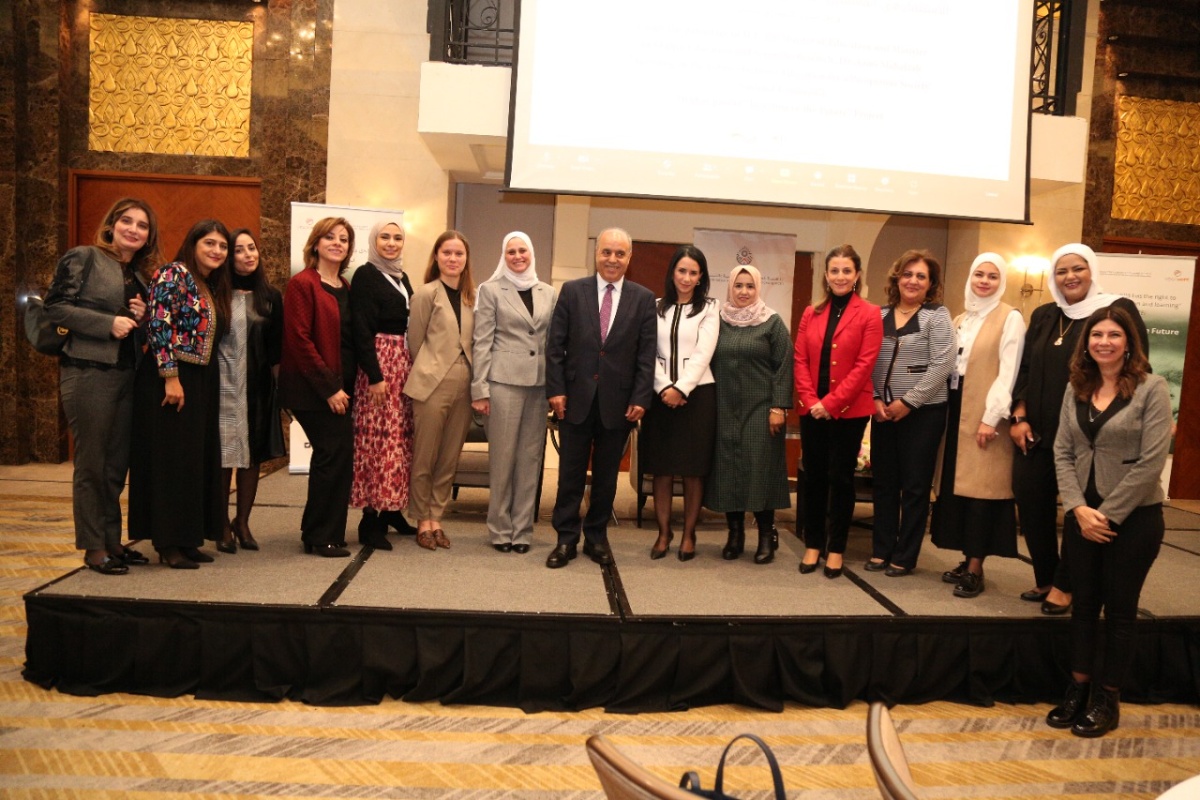Jordan has just stepped into its second centenary, and despite the various measures taken by the government to reform the education sector, numerous challenges face the development and promotion of a comprehensive and safe formal education in the country.
Under the patronage of Minister of Education and Minister of Higher Education and Scientific Research Azmy Mahafzah, and in keeping with the Children’s Day’s slogan “Inclusion, for every child”, the Arab Renaissance for Democracy and Development (ARDD) held the national conference “Investing in the Future: Comprehensive Education for a Prosperous Society” on November 20, 2022. The conference stressed the need to prioritize quality education for all children, regardless of their nationality and social, economic, and legal status, and to shed light on issues of accountability, parents’ participation in the education process and efforts to develop this process to push communities toward renaissance.
The conference was held as part of the “Investing in the Future” project implemented in partnership with Vision Hope International and funded by the German Federal Ministry for Economic Cooperation and Development. It was attended by various actors in the field of protection, education, psychosocial support, legal aid, parenting skills, livelihood, and child protection, members of governmental and semi-governmental organizations, and local and international civil society organizations and sub-working groups. A short film was screened portraying the challenges facing education in the Arab World and the impact conflicts and crises have had on it.
Mahafzah said: “We all agree that education is the tool for development and the basis for nations’ growth. It is the pillar of the future as it is part of the economy, culture, politics, and community.”
He stressed the importance of developing educational systems, keeping up to date with change, mastering modern tools, and opening up to modern methodologies to achieve understanding and education that helps solve problems through critical and creative thinking.
ARDD CEO Samar Muhareb stressed the need for quick action to address the problems plaguing the education system, and an expansion of partnerships among civil society, governments, and the private sector in order to put the basis of a common social educational contract. She said that excluding the disabled, refugees, and the poor from education affects their chances of securing work and enjoying decent lives.
Deputy Secretary-General for Technical Affairs at the Higher Council for the Rights of Persons with Disabilities Ghadeer Alhares said that “nations’ progress is assessed through their development of education”, especially inclusive education. According to her, 79% of disabled people do not receive an education, which should raise the alarm about a real crisis stemming from the lack of inclusive education, limited budgets, and absence of coordination among donors.
Speaking about the importance of entrepreneurship, Education Program Manager at the EU Delegation in Jordan W. Watershoot said that is it essential to enable all refugees in the Kingdom have access to education, especially in light of the challenges they face such as language, and social and cultural differences. She stressed the importance of granting more education scholarships, bringing about more reforms and development, and focusing on creative solutions for the medium-term and long-term to offer everyone alternative opportunities.
A dialogue session moderated by Dr Raad Tal examined the opportunities and challenges facing inclusive education in Jordan. Education Program Advisor at ARDD Aseel Shawareb from the Department of Educational Sciences at Petra University , Education Specialist at UNICEF Rana Kawar, and Zeina Jadaan, head of education at UNHCR participated in the session.
Speakers agreed that challenges are numerous and are reflected in the economic, social, political, and security areas. Refugees and displaced people in camps and areas impacted by conflicts are facing even more challenges, they said, highlighting the fact that there are around 35,000 refugee students enrolled in Jordan’s universities who have limited resources and place higher demand on technical and vocational universities.
Speakers summarized challenges facing the education sector in Jordan, where teachers are not equipped to incorporate life skills in their approaches, and a stable educational system that provides youth with academic and vocational education opportunities that match their interests and capabilities is lacking. Added to that are a weak vocational education system and the schools’ inability to secure the needs of the job market or to address issues such as violence and extremism. Speakers also pointed out that there is lack of tools that ensure dialogue and offer psychological support to students.
Among the reasons the most vulnerable lack access to quality education they cited refugees’ lack of adequate documents, poverty, the cost of transportation, weak school infrastructure, and deterioration of security and healthcare. They also noted that in most areas, the school environment does not comply with international standards.
The “Investing in the Future” project falls under ARDD’s education strategy that aims at adopting a comprehensive approach to education that has at its basis the right of all to access quality education and educational opportunities that help them fight poverty and help ensure sustainable social change. Such an approach should raise awareness about inclusive education programs and academic support activities, vocational education scholarships, and educational, legal, and protection aid, and provide art programs in order to meet the educational needs of refugees and the most vulnerable groups, and ensure their protection.
Speakers concluded by recommending continuous collaboration among partners and devising policies aiming at developing education based on national reformative goals. This requires addressing the different elements of the educational process, including human resources, curricula, and infrastructure.


